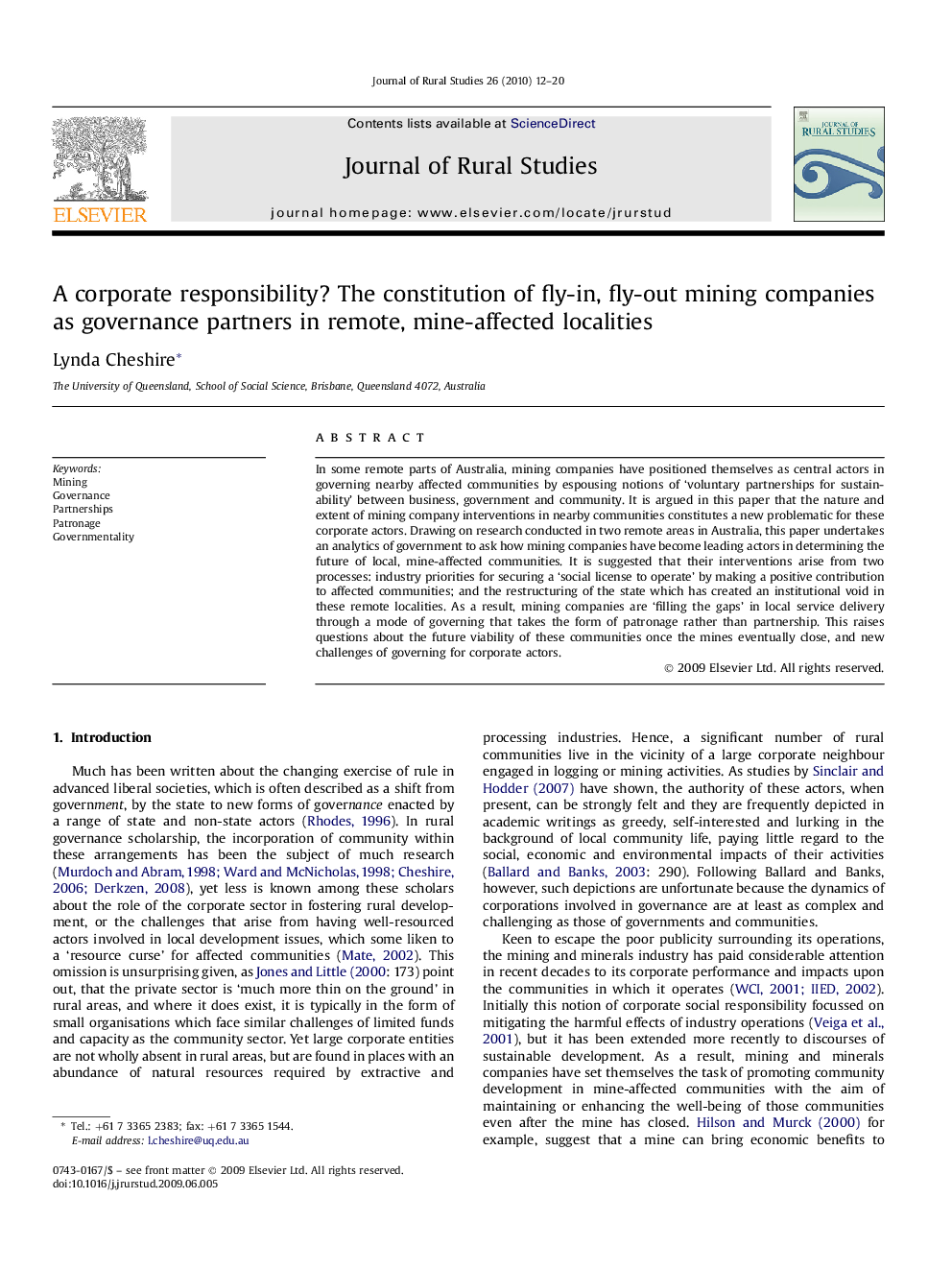| Article ID | Journal | Published Year | Pages | File Type |
|---|---|---|---|---|
| 92605 | Journal of Rural Studies | 2010 | 9 Pages |
In some remote parts of Australia, mining companies have positioned themselves as central actors in governing nearby affected communities by espousing notions of ‘voluntary partnerships for sustainability’ between business, government and community. It is argued in this paper that the nature and extent of mining company interventions in nearby communities constitutes a new problematic for these corporate actors. Drawing on research conducted in two remote areas in Australia, this paper undertakes an analytics of government to ask how mining companies have become leading actors in determining the future of local, mine-affected communities. It is suggested that their interventions arise from two processes: industry priorities for securing a ‘social license to operate’ by making a positive contribution to affected communities; and the restructuring of the state which has created an institutional void in these remote localities. As a result, mining companies are ‘filling the gaps’ in local service delivery through a mode of governing that takes the form of patronage rather than partnership. This raises questions about the future viability of these communities once the mines eventually close, and new challenges of governing for corporate actors.
